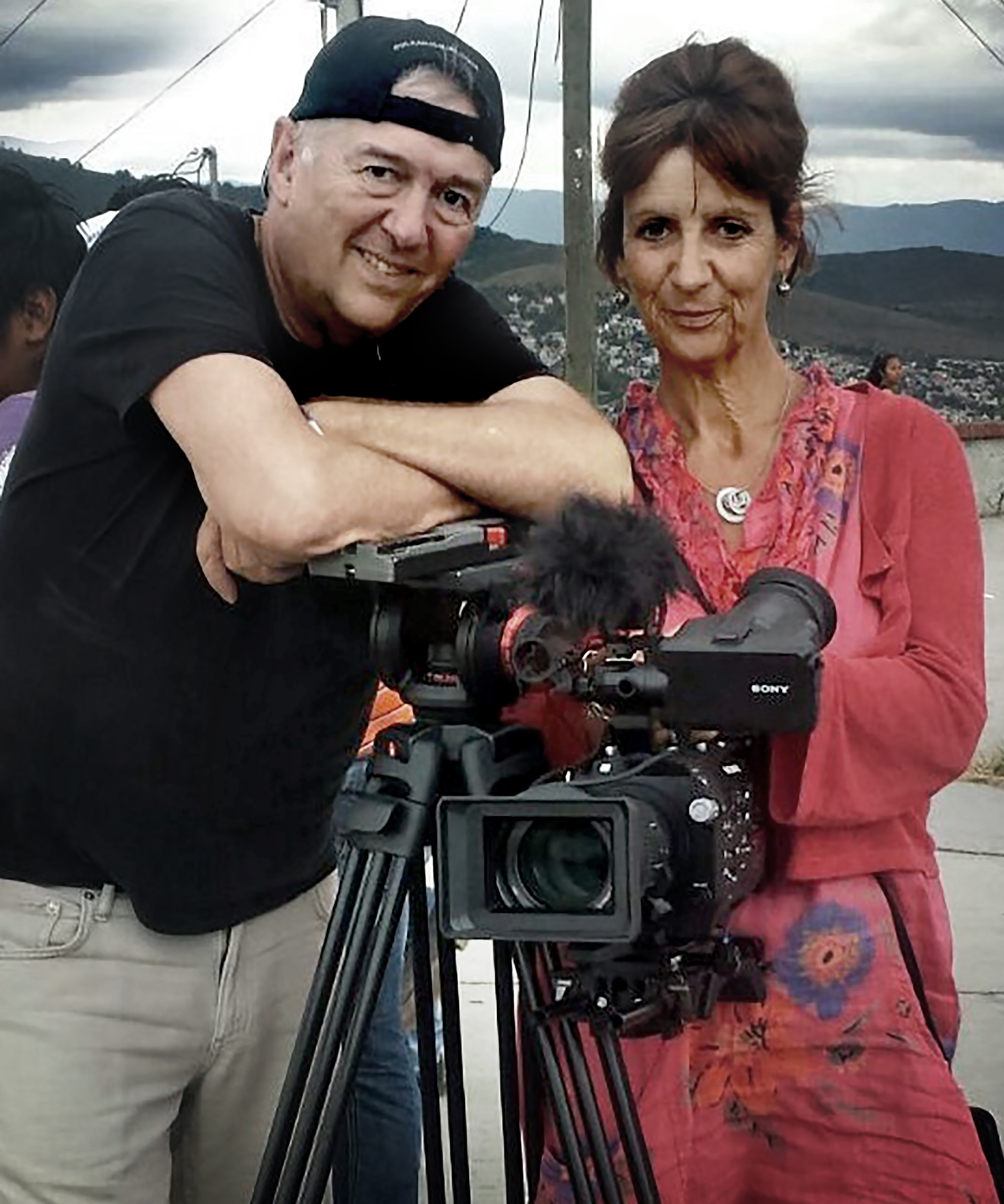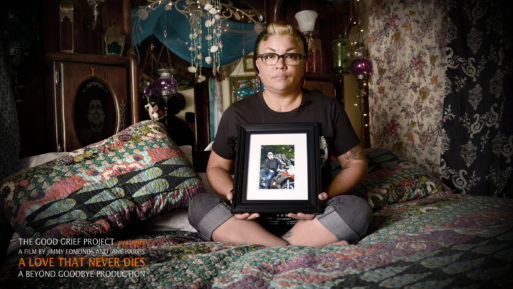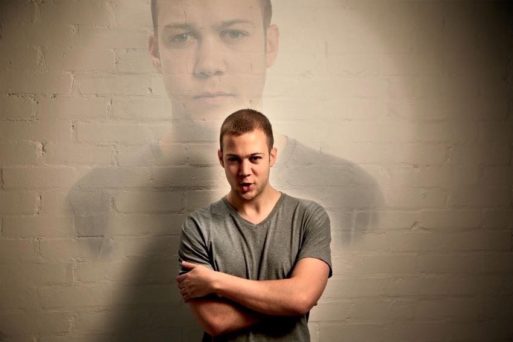In this first part of a two-part interview, I speak with Jane Harris. She and her husband, Jimmy Edmonds, lost their 22 year-old-son, Josh when he died in a road accident in Vietnam in 2011. In the wake of his death, they created the charity, The Good Grief Project, which they use to make films, put on retreats, and give live presentations that share their experience, open up the conversation, and help other bereaved parents and siblings find an active and creative response to the expression of their grief. Jane and Jimmy live in the UK, where Jane works as a therapist and Jimmy as a filmmaker. They recently released their newest film, A Love That Never Dies (which we will be reviewing on February 22nd).
Editor’s note: This interview has been edited for length and readability.

Filmmakers Jane Harris and Jimmy Edmonds
Credit: Beyond Goodbye Media Ltd
Colleen Ferguson: Hi Jane, lovely to meet you. Do you mind starting by explaining the purpose of The Good Grief Project?
Jane Harris: The Good Grief Project is about opening up conversations and breaking the silence around death, especially the death of one’s child. I suppose we started this charity because we found that after the funeral is over, people’s lives carry on, but for the bereaved, life takes on a very different trajectory. It’s a very different experience, and you’re kind of left behind for a while. People expect you to return to “who you were.” But, of course, you are not “who you were” — you are inevitably changed by the death of your child.
Colleen: There seems to be a common theme in many of the stories you share of other bereaved parents in your film, “A Love That Never Dies” — the feeling of isolation and alienation from others they feel once their child has died, and the expectation that they should “move on” or “find closure.”
Jane: Yes. The grief that comes after the death of your child brings many openings, but it never brings closure. We really don’t like the word closure. If your child dies, you never stop loving them; you never stop missing them. Why would you?
And that’s what we’re trying to say with our films and our retreats: That’s not madness, that’s not an illness. That’s what mothers and fathers and siblings do. They carry on loving the child forever. And that’s not something that should be translated into, “Oh, this person isn’t well — there’s no closure.” People who say that may be well-intentioned, but, of course, you don’t move on in that way. You never find closure. But you do learn to live with that jagged edge that the death of a child brings. And it does get less jagged over time, as we’ve learned in our own experience and talking to other bereaved parents.

A LOVE THAT NEVER DIES Production Still – Denise Martinez from California with a photo of her son Jesse who died 10 months previously
So, what we’re trying to do is open up those conversations and say, “Let’s talk about it. Let’s share stories; let’s normalize it. Let’s look at the usefulness of tradition, the usefulness of ritual, the usefulness of diversity and cultural approaches to death and grief, and see what we can learn and share.” Those conversations help us and seem to help a lot of other people as well.
And that’s what “A Love That Never Dies” is about. Life after loss. We wanted to listen to people’s stories and get an idea of life and grief, and what helps and what doesn’t.
Colleen: Why do you think most people don’t want to have conversations with bereaved parents about the death of their child?
Jane Harris: I suppose we represent people’s worst nightmare, and they don’t want to get close to that. I think at an unconscious level, they think, “What if that happens to me?” But I believe the primary reason that stops people from talking to bereaved parents is that they feel helpless. They can’t “fix” it, nor can they say anything to “fix” it.
But it’s not for fixing. Josh is dead. I’m getting used to it, and I’d like others to get more comfortable with their anxiety about being around me or other bereaved parents. We might cry, but that could be because you mentioned our child’s name and it made us happy that you had the courage to say, “You must miss Josh.” When that happens, I think, “How nice that someone has actually said his name.”

Photo montage of Joshua aged 20
Credit: Beyond Goodbye Media Ltd
Colleen: And was that experience and perspective the inspiration for your film “Say Their Name”?
Jane Harris: Yes. We made that film for Compassionate Friends in the UK. We were helped very early on by them when we were feeling particularly isolated in our grief and there was this huge silence about Josh and his death. I went on one of their retreats and the first thing that happened was someone came up to me and said, “So, who are you here to remember?” I said “Josh,” and I remember thinking, “Wow, that’s the first time someone had asked me that.”
So we made this film as a way of giving back to Compassionate Friends in the UK and tackling that subject. They’re a wonderful organization with support groups all over the UK and a helpline that is open every day of the year — which isn’t what we offer. They’re a unique charity, and the peer-to-per support they offer is invaluable for bereaved parents.
This concludes part one of our interview with Jane Harris. Please come back next week to read part two, when we discuss the concept of continuing bonds and how understanding grief as a creative and active process can help bereaved parents and others.

 How Does Opening Up Conversations About Death Help Bereaved Parents?
How Does Opening Up Conversations About Death Help Bereaved Parents?


 Recovering Cremation Remains After the Los Angeles Fires
Recovering Cremation Remains After the Los Angeles Fires
 “As Tears Go By” by Marianne Faithfull
“As Tears Go By” by Marianne Faithfull
 “The Sea” by John Banville
“The Sea” by John Banville














